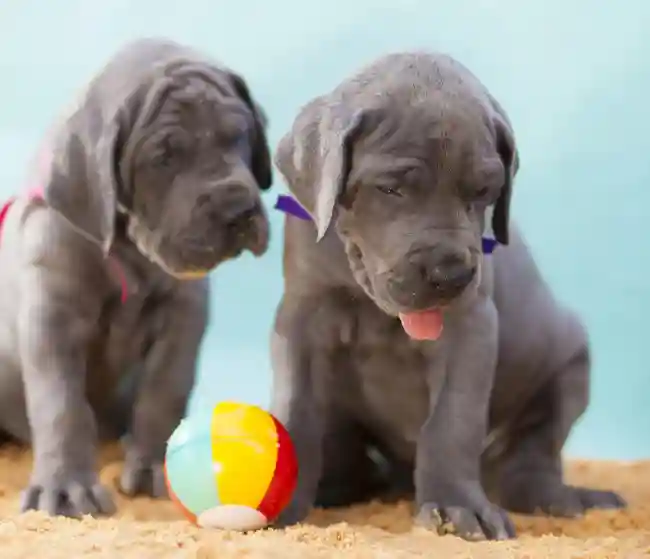Great Dane

The easygoing Great Dane, the mighty “Apollo of Dogs,” is a total joy to live with—but owning a dog of such imposing size, weight, and strength is a commitment not to be entered into lightly. This breed is indeed great, but not a Dane.



Want to know more about Great Dane ?
Breed Traits
Clubs, Registries & Associations
American Canine Association Continental Kennel Club Universal Kennel Club International American Kennel Club United All Breed Registry America's Pet Registry, Inc. United Kennel Club (Based on breed recognition. See store for details on this particular puppy.)
Interesting To Know
Group
Heritage
Description
Health Awareness
Personality
Additional Information
About
As tall as 32 inches at the shoulder, Danes tower over most other dogs—and when standing on their hind legs, they are taller than most people. These powerful giants are the picture of elegance and balance, with the smooth and easy stride of born noblemen. The coat comes in different colors and patterns, perhaps the best-known being the black-and-white patchwork pattern known as “harlequin.” Despite their sweet nature, Danes are alert home guardians. Just the sight of these gentle giants is usually enough to make intruders think twice. But those foolish enough to mistake the breed’s friendliness for softness will meet a powerful foe of true courage and spirit. Patient with kids, Danes are people pleasers who make friends easily.
History
Standard
Nutrition
Grooming
Exercise
Training
Health
General Appearance
The Great Dane combines, in its regal appearance, dignity, strength and elegance with great size and a powerful, well-formed, smoothly muscled body. It is one of the giant working breeds, but is unique in that its general conformation must be so well balanced that it never appears clumsy, and shall move with a long reach and powerful drive. It is always a unit-the Apollo of dogs. A Great Dane must be spirited, courageous, never timid; always friendly and dependable. This physical and mental combination is the characteristic which gives the Great Dane the majesty possessed by no other breed. It is particularly true of this breed that there is an impression of great masculinity in dogs, as compared to an impression of femininity in bitches. Lack of true Dane breed type, as defined in this standard, is a serious fault.


